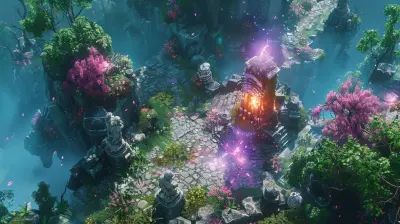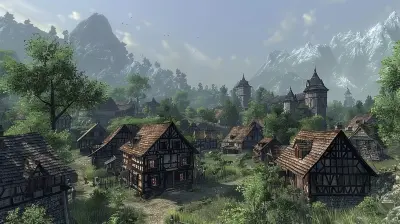Player Choice and Consequence in Modern MMOs
21 September 2025
Jump into any modern MMO (Massively Multiplayer Online game), and you’ll quickly find that these worlds aren’t just about grinding levels or hunting for rare loot anymore. Nope, MMOs have evolved. Big time. One of the most exciting and powerful evolutions? Player choice and the consequences that ripple through the game world because of it.
Whether you're aligning yourself with a moral compass, choosing factions, or deciding the fate of a beloved NPC, your choices can shape your character's journey—and sometimes even the entire game world's narrative. Yeah, it’s that deep. Let’s dive in and break down how modern MMOs are putting the power into players' hands.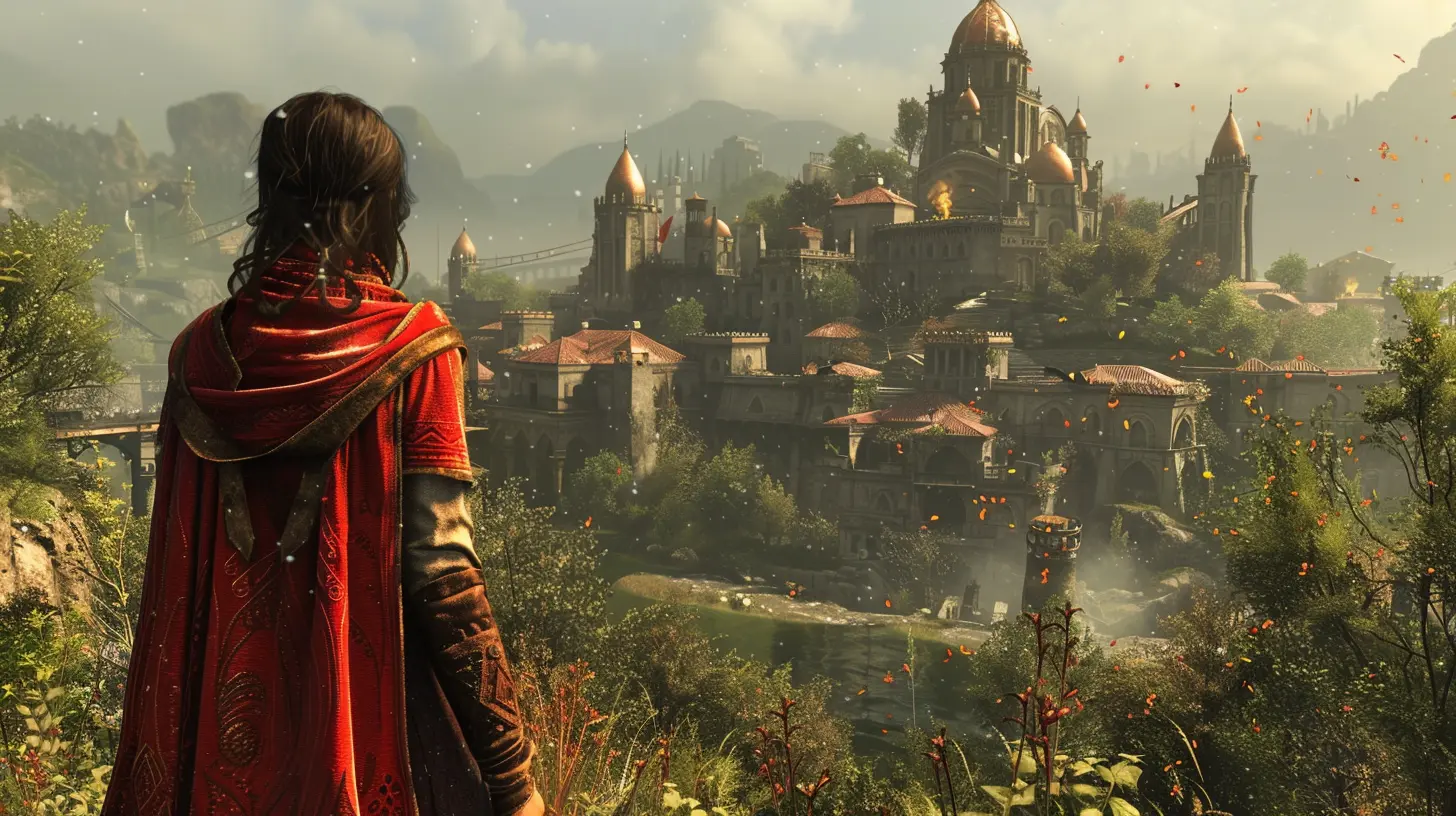
The Evolution of Choice in MMOs
Back in the early days of MMOs—think classic EverQuest or RuneScape—your choices were pretty limited. Kill this monster, fetch that item, rinse and repeat. Sure, it was fun (we didn't know any better), but it wasn’t exactly Shakespeare.Fast-forward to today’s MMOs like The Elder Scrolls Online, Final Fantasy XIV, or Guild Wars 2, and you’ll see storytelling on a whole new level. Developers aren’t just crafting quests—they’re creating branching narratives that react to us, the players.
Remember Decisions That Actually Matter?
Ever made a choice in a game, only to realize it didn’t change a thing? Super frustrating, right? Modern MMOs are trying hard to fix that. The best ones make sure your choices have visible, impactful consequences. And let’s be real: it feels awesome when your decisions actually mean something.Just like real life, not all decisions are black and white. Do you help a struggling village steal from the rich to survive? Or do you rat them out for the greater good? These kinds of moral gray areas make player-driven stories so much juicier.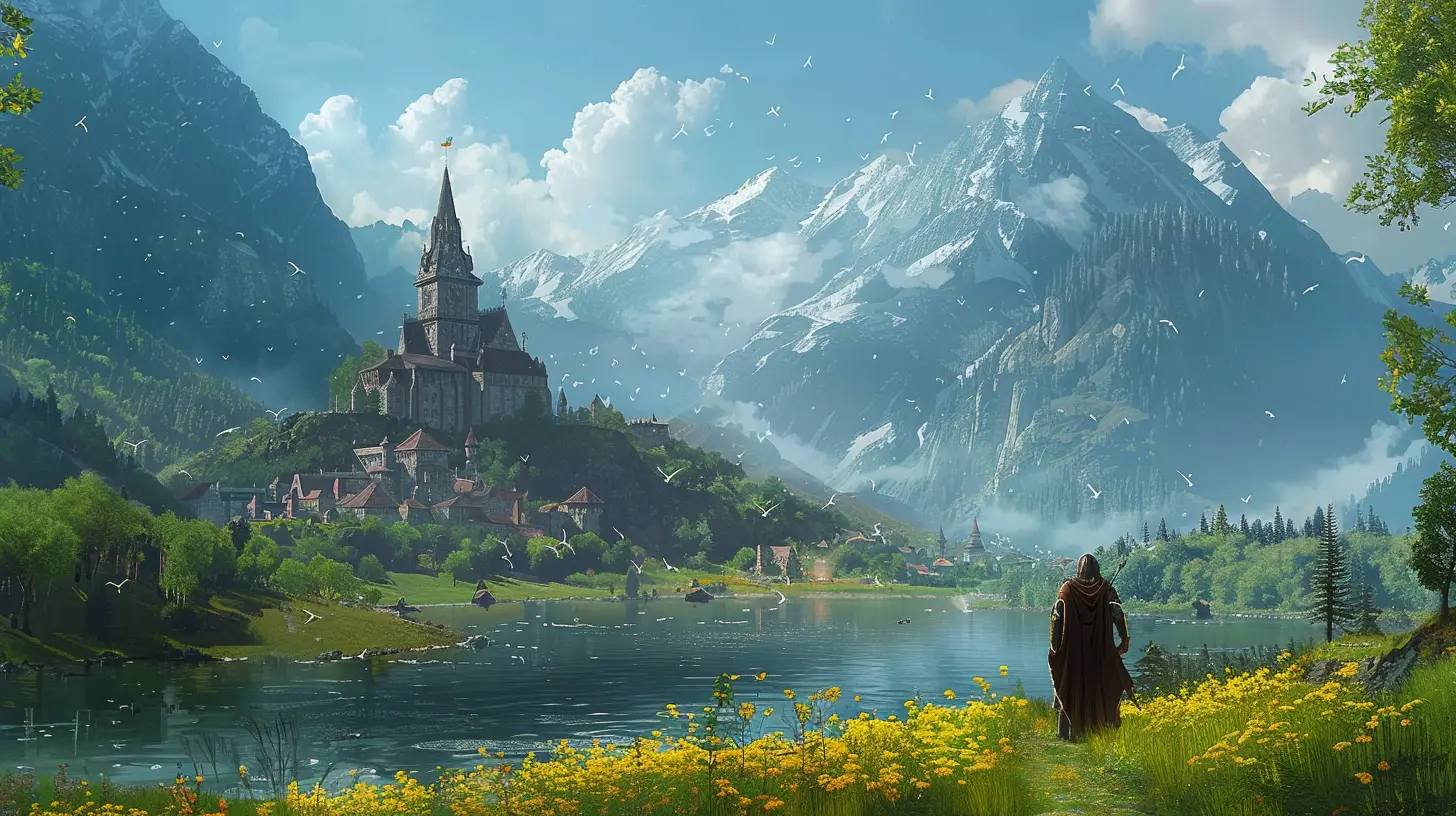
Factions and Allegiances: Picking Sides
One of the oldest but most effective types of player choice is faction alignment. You’ve seen it in World of Warcraft—Alliance or Horde?—and in tons of other MMOs. But now, it goes way beyond simple team pickings.Dynamic World Events Based on Factions
Let’s say you side with a particular faction. That decision might change how NPCs react to you, what quests you’re offered, and even your access to certain areas. Games like New World make this concept even more exciting by letting player factions control territories, affecting taxes, shops, and bonuses across entire regions.How cool is that? Your team’s victory isn't just a stat on a leaderboard—it literally changes the map for everyone.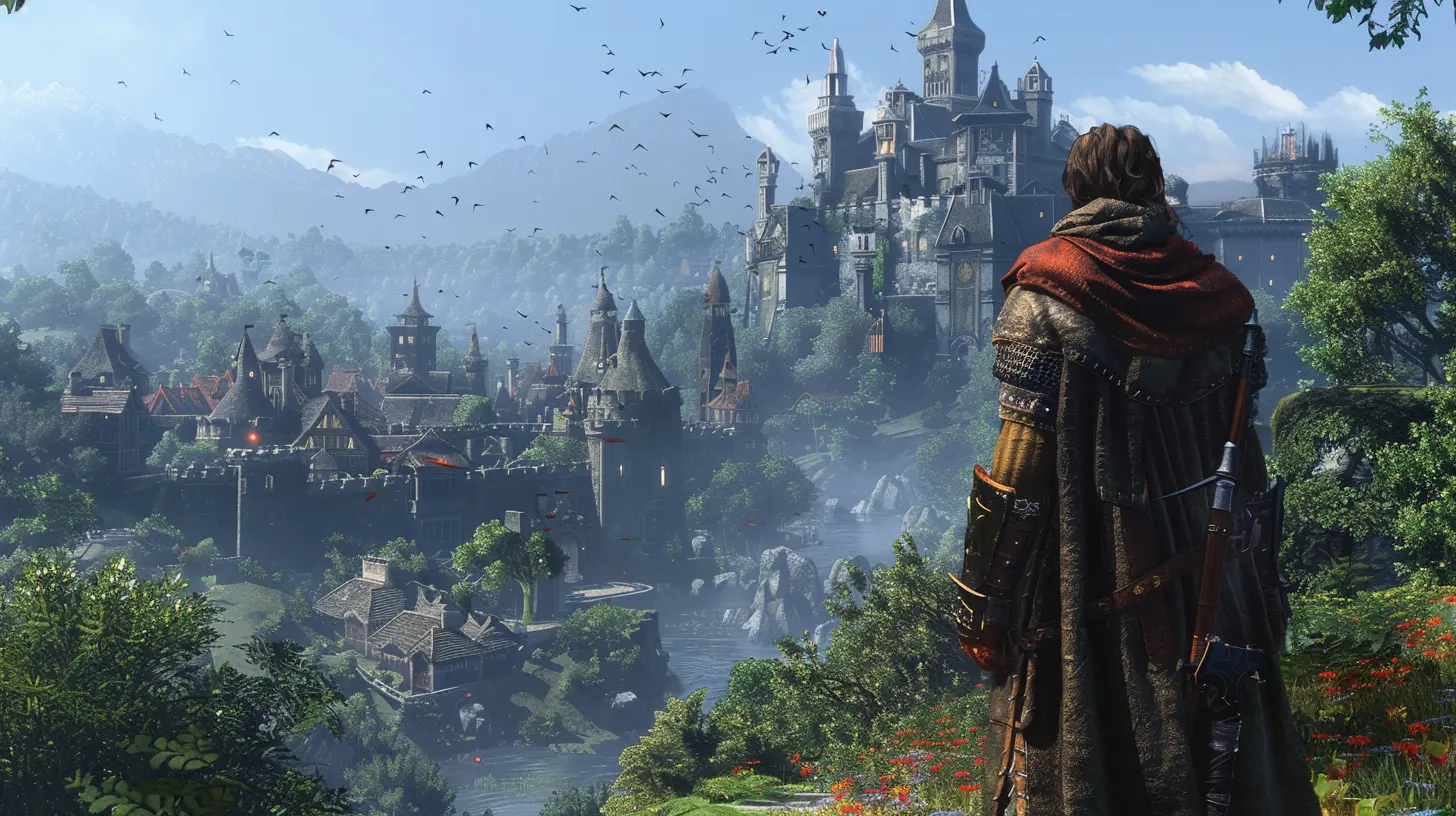
Consequence Isn’t Always Immediate
Modern MMOs are playing the long game. You might make a decision in level 10 that won’t come back to haunt—or reward—you until level 50. Sound like a headache? Maybe. But it’s also super satisfying.Long-Term Story Arcs
Think about a game like The Elder Scrolls Online, where your choices in one zone influence what happens later. Maybe you spared a villain because they seemed redeemable. Ten hours later, they return—but are they a friend or foe now? That’s the beauty of long-term storytelling. It’s like planting a seed and watching it flourish…or wither.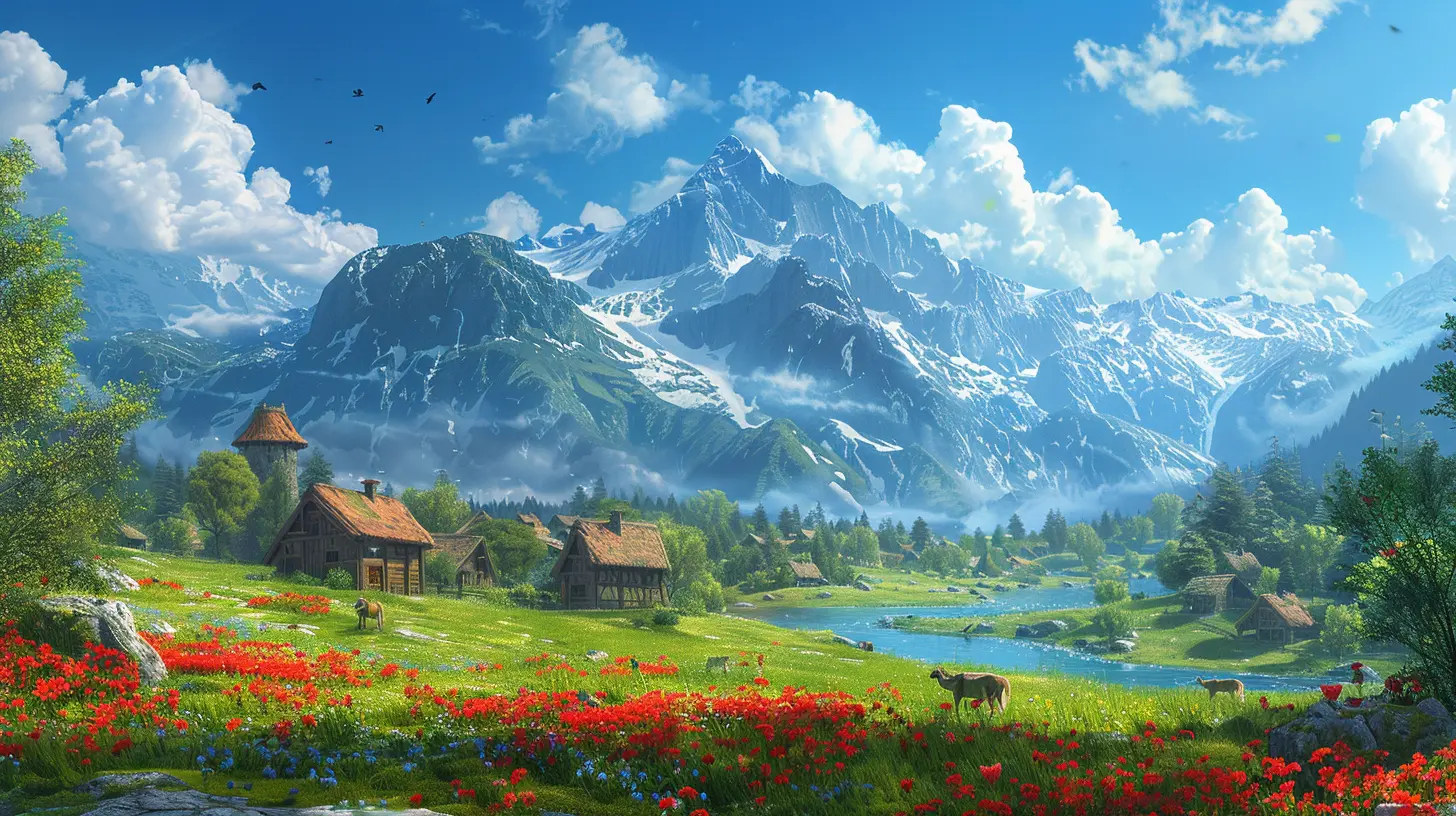
Player-Driven Economies and Politics
Wait—economies and politics? In a game? Yep. In a lot of sandbox MMOs, your choices don’t just affect the story—they manipulate the game’s systems.The Rise of Sandbox MMOs
In titles like EVE Online, players literally shape the world. We're talking about real wars, fake politics, and massive corporations run by actual people. Players make alliances, betray each other, build empires. The developers basically hand us the keys and say, “Go wild.”This type of open-ended gameplay creates some of the most unpredictable and unforgettable stories in gaming. And guess what? Every single event comes down to player choices.
Morality Systems: Not So Black and White
Who doesn’t love a good moral dilemma? Many MMOs now feature karma or reputation systems that track your choices and affect how the world treats you. It's like a cosmic scoreboard for your in-game soul.Reputation Systems That Stick
Games like Star Wars: The Old Republic shine with this. Go full Sith? People will fear you—some might even worship you. Walk the Jedi path? You’ll gain respect, but it might make certain missions trickier. Your reputation unlocks different gear, story outcomes, and even companions. So yeah, alignment matters.And it’s not always about being “good” or “bad." Sometimes, it’s about being clever, cautious, or downright chaotic, depending on how you want to play it.
Choices in Dialogue and Relationships
Let’s be honest: we all love a good gossip or witty banter with NPCs. But in modern MMOs, dialogue isn’t just filler text—it can drastically shape your journey.Creating Personal Bonds
You may notice that more and more MMOs are borrowing romance and friendship mechanics from single-player RPGs. That’s intentional. Whether you’re flirting with a rogue assassin or befriending a humble merchant, these relationships can give your story layers, depth, and unique interactions.Maybe your bond with an NPC saves your life later. Or maybe your poor treatment gets you ambushed. Oops?
Player Housing and Territory Customization
Now, this may not seem like a “choice and consequence” setup at first glance, but hear me out. What you build and where you build it can seriously impact your gameplay.A Home That Reflects You
MMOs like Final Fantasy XIV have robust housing systems where your decisions about décor, layout, and even location can affect how you’re perceived in the community. Want to live in a PvP-heavy zone? You’ll deal with constant battles. Prefer a peaceful coastal retreat? Nice, but maybe you’re far from action hubs.It’s still a form of choice, and over time, those choices can shape your play style and daily experience.
Community Choices and Global Consequences
Some MMOs take things a step further by introducing community-based consequences. Think world events or servers where players collectively affect the story’s direction.Global Server Decisions
For example, in Guild Wars 2, players can rally together to push back enemy invasions. Whether the players succeed or fail changes the game world for everyone on that server. That’s next-level immersion! It’s no longer just “my story”—it’s our story.These shared narratives build stronger communities, too. Players chat, collaborate, and strategize—all because their choices aren’t isolated. We’re all in it together, and our actions matter on a grand scale.
The Future of Choice in MMOs
With AI and procedural storytelling on the rise, we might soon see MMOs that remember every little decision you make and customize storylines uniquely for you. Imagine playing a game where no one else has the exact same experience as you. Mind blown, right?Personalized MMO Experiences
Imagine an MMO that uses machine learning to adapt quests based on how you play, what you enjoy, and what you’ve done before. It’s like having a game that learns you, grows with you, and responds like a living world.And with VR and AR tech slowly creeping in, player choices might feel even more tangible—like you're really there, making decisions that shape real (virtual) worlds.
So, Why Does It Matter?
You might be thinking, “Isn’t this just overthinking a video game?” Trust me—it matters.When games give us real choice and consequence, they stop being just games. They become stories we’re writing ourselves. They become emotionally rich, unpredictable, and personal.
And let’s be real—who doesn’t want to feel like the hero (or anti-hero) in their own epic saga?
Final Thoughts
Modern MMOs are no longer just about high scores and monster mashing. They’ve grown into living, breathing worlds where your decisions actually count. From choosing your faction to deciding the fate of a kingdom, MMOs are letting you take the wheel—and the ride has never been more thrilling.So next time you're questing through your favorite online world, think twice before making that seemingly minor dialogue choice—it just might come back to haunt you… or reward you in ways you never expected.
Go out there, click wisely, and shape your virtual legacy.
all images in this post were generated using AI tools
Category:
Massively Multiplayer OnlineAuthor:

Luke Baker
Discussion
rate this article
1 comments
Scout Bennett
While modern MMOs tout player choice, many fail to deliver meaningful consequences, often reducing decisions to mere aesthetics. True agency demands that choices significantly impact gameplay, narrative, and community dynamics.
September 27, 2025 at 3:45 PM

Luke Baker
Thank you for your insightful comment! I completely agree that meaningful consequences are essential for true player agency in MMOs, and it's crucial for developers to prioritize impactful choices to enhance gameplay and community engagement.
